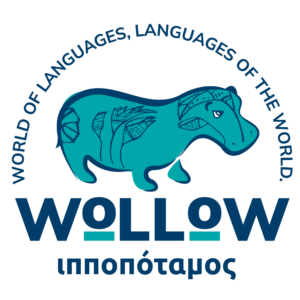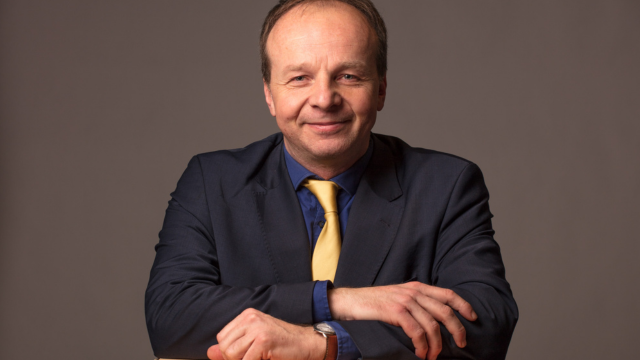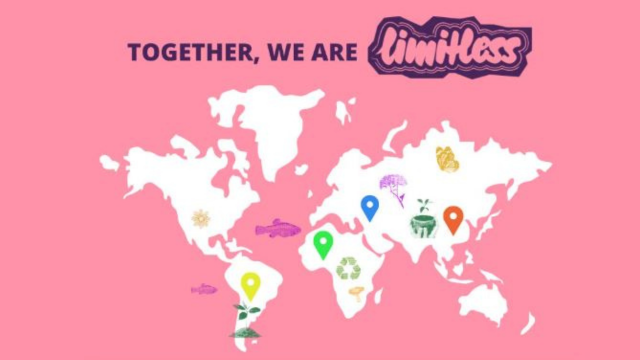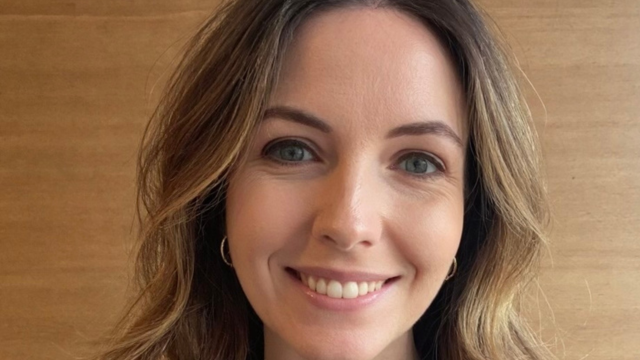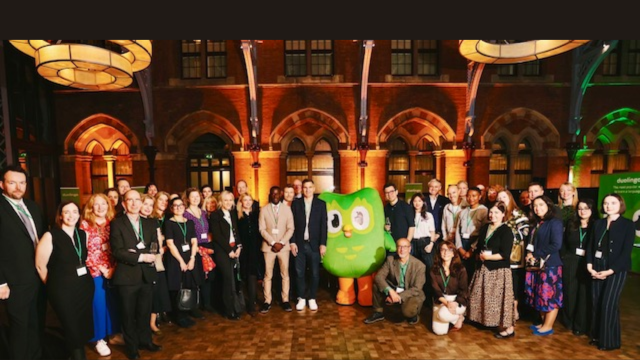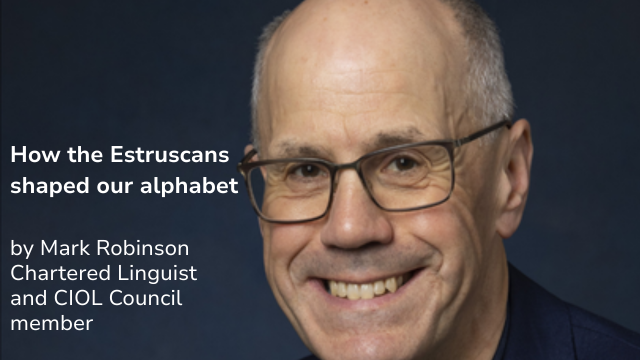-
QUALIFICATIONS
- For Linguists Worldwide
- For UK Public Services
- Preparation
- Policies & Regulation
-
MEMBERSHIP
- Join CIOL
- Professional Membership
- Affiliate Membership
- Chartered Linguist
- Already a member?
- Professional conduct
- Business & Corporate Partners
-
LANGUAGE ASSESSMENTS
- English
- All Other Languages
-
CPD & EVENTS
- Webinars & Events
- CIOL Conferences
- Networks
- CIOL Mentoring
-
NEWS & VOICES
- News & Voices
- CIOL eNews
- CIOL Awards
- The Linguist Magazine
- Jobs & Ads
-
RESOURCES
- For Translators & Interpreters
- For Universities & Students
- Standards & Norms
- CIOL & AI
- All Party Parliamentary Group
- In the UK
- UK Public Services
- Find-a-Linguist
Why ‘WoLLoW’?
‘WoLLoW’, an answer to the teaching of languages in primary schools?
By John Claughton
The National Curriculum sets out the purpose of language teaching in our schools like this.
‘A high-quality languages education should foster pupils’ curiosity and deepen their understanding of the world. The teaching should enable pupils to express their ideas and thoughts in another language and to understand and respond to its speakers, both in speech and in writing. It should also provide opportunities for them to communicate for practical purposes, learn new ways of thinking and read great literature in the original language. Language teaching should provide the foundation for learning further languages, equipping pupils to study and work in other countries.’
However, few would deny that there is something of a gap between this noble ambition and the reality in classrooms. Indeed, the long, and seemingly inexorable, decline of students doing GCSE or A level languages suggests that the current dispensation isn’t working. This may be particularly true in KS2, the early years of language learning, where the very lack of clarity and direction about what should be taught, and how and to what level, leads inevitably to inconsistency and the dispiriting need to start all over again in secondary school. That can’t be very motivating for our pupils. At the same time, the increasing number of multilingual pupils get little or no chance to share their own languages and the take-up of ‘heritage languages’ at GCSE and A level remains tiny – as if these languages were less valuable.
So, could there be an elsewhere, a new dispensation? Well, we think so. Over the last 7 years, four experienced language teachers – of whom I am the most experienced. i.e. oldest – have created ‘WoLLoW’, ‘World of Languages, Languages of the World’. It is designed pto bring an entirely new approach to the teaching of languages for pupils aged between 7 and 13 and thereby to bring the study of languages, all languages, into the centre of education. In particular, we want to share and value the languages which the pupils actually know. This is fundamental to society today for four reasons:
- this is a time when our schools have much greater linguistic diversity than ever before: over 20% of primary school pupils are categorised as EAL and many primary schools, especially in cities, are the home to 30 or 40 or even 50 different languages.
- this increasingly diverse society has an urgent need to generate understanding, communication and respect between all people, and perhaps especially the young.
- a pupil’s language is a part of his/her identity and a connection with their family, their culture and their history.
- the languages which our pupils know are a massive asset to individuals, their relationships, their communities and society as a whole, and that value is particularly important at a time when the study of other languages is in decline at every level.
The current primary curriculum is based upon the absolute centrality of English and the teaching of other languages is confined almost entirely to French and Spanish, which may have little relevance to the pupils’ own lives. As one primary school teacher wrote:
‘When multilingual children arrive at school, they are excited by their home language and happy to share it with teachers and classmates, but as the years go by, they hang their heads when that language is mentioned. Their bilingual identity is socialised out of them.’
Another perspective on this situation is provided by a Year 11 pupil from a school which uses senior pupils to teach ‘WoLLoW’ in local primary schools:
‘I remember in one class I was teaching, there was a whole table of kids, who were sat next to each other for almost half a year, but it was not until our sessions together that they found out that they all spoke the same language, Farsi!
This is one example of many that demonstrate this huge disconnect between personal linguistic identity and school, and it has really opened my eyes to the need for more linguistic education of the type that WoLLoW offers.’
These issues have a significance that goes beyond the design of the curriculum or assessment, to the very nature of our society. So, we have created a set of resources for pupils from the age of 7 to 14 (KS2 and KS3). These lessons, which are close to a hundred in number and are grouped under topics. For example, there are lessons on:
- the multilingualism of pupils and their families, so that pupils can share their own languages.
- the history of the English language and the languages from which it is formed, so that pupils can learn about the influences on English from Celtic and the Greeks to more recent thefts.
- the family tree of languages, why some languages are similar and others so different.
The overarching purpose is to bring together all the elements of a pupils’ experience in and out of school - and to prepare pupils not only for future study of languages, but to understand the world – and their role in it – better.
‘WoLLoW’ resources are already being used in hundreds of schools, primary and secondary and special schools, state and independent schools and schools overseas. Feedback from those schools show that ‘WoLLoW’ is bringing the following to pupils, and teachers:
- curiosity, exploration and a sense of enjoyment – and not only for the pupils.
- an understanding of languages, a way of thinking between languages, and thereby a development of literacy in a wider sense.
- communication, sharing, dialogue and oracy:
- an equal regard for all languages, modern, classical, heritage and, in particular, a celebration of multilingualism:
- a desire to preserve, value and study familial languages:
- an eagerness to study languages into the future.
- respect for each other’s history and culture:
- a sense of self-awareness and identity for pupils:
- a bridge between the pupils’ experience at school and their home life, a bridge between parents and the school.
- an awareness of the relevance of languages not only to all school subjects but also to wider issues, such as migration and empire.
All of this might be called a ‘language awareness’ course, or a ‘linguistics’ course, or even a ‘socio-linguistics’ course, and it undoubtedly is concerned with ‘metalinguistics’, but we think that ‘WoLLoW’ is a bit easier to understand, especially for 9 year-olds.
The course also has proved to have the following advantages:
- since the programme aims at an exploration shared between pupils and their teachers, it does not need to be taught by a languages specialist.
- it is inclusive in that it encourages contributions from all pupils and is a can thereby give a voice to EAL pupils.
- it is infinitely flexible so that it can be used as a curriculum in itself, or alongside the teaching of a language, as part of the English or PSHE curriculum, or in form period, or as the basis for a language club, or for special occasions, or as a preparation for transition to secondary school.
- it is a particularly powerful tool in independent/state school partnership work in that it provides resources which can be taught by all teachers, whether team-teaching or not, or by senior pupils to younger pupils.
- it encourages collaboration between teachers from all subjects.
- it can be seen to work in a wide variety of different contexts: it is particularly effective as the language curriculum in special schools since it is adaptable and can play to the strengths of SEND pupils.
- we also have evidence that the progress that pupils have made can be assessed by an approach which explores their skills and attitudes as much as their knowledge.
- it enables the pupils and the school to engage with parents – and grandparents – and to make them, and their languages and histories part of the school.
Responses to WoLLoW
Of course, I would say that ‘WoLLoW’ was a Good Thing, but the opinions of others might be more material.
Junior school teacher in Birmingham.
‘I am not a linguist by training, but by teaching ‘WoLLoW’ I have been able to awaken in the boys a real interest in two different, but related issues. The first is an understanding of how languages work. We’ve looked at a wide range of languages, from Greek to Punjabi, and seen fundamental similarities. We’ve talked about and deciphered different alphabets. We’ve thought about etymology, spelling, grammar and scientific/mathematical terminology. And all of this has led to the code-breaking world of the UK Linguistic Olympiad. The second is an interest in the relation between language and history and their own histories. ‘WoLLoW’ has encouraged the pupils to talk to the different generations in their families about their linguistic stories and to see how languages help us to understand the role of empires and migration. Thereby the pupils have actually engaged with what we might call ‘geopolitics’, an excellent polysyllabic Greek word.’
Secondary school teacher in Wakefield
‘Teachers love teaching it, students love studying it. Not only that, but when speaking at our Curriculum Evening, it was clear that parents saw great value in WoLLoW. Parents whose first language is Greek, Urdu, Punjabi, Mandarin, Yoruba, made sure they saw me at the end to share their enthusiasm.’
Secondary teacher in North Yorkshire.
‘It is clear is that when we return to French or Spanish lessons after a WoLLoW lesson, links are being made and a deeper appreciation of languages and language learning is certainly evident’.
Secondary school teacher from Manchester, who has been teaching ‘WoLLoW’ in local state primary schools.
‘WoLLoW’ has enabled me to share my passion for language with younger learners and enabled the class teachers with whom I have worked to see how relevant language is across the curriculum. Learners have been active in shaping lessons and we have allowed their curiosity, and knowledge, to determine the directions we take. I am confident that ‘WoLLoW’ will make those who join a Year 7 beginners' language course better equipped for the challenges of language learning and will be ready to enjoy the practice of language learning. As for me, ‘WoLLoW’ has made me see beyond my beloved Spanish and realise that our role is to prepare adaptable and open-minded linguists, regardless of the language they end up studying - modern or classical. I am more comfortable than I have ever been when faced with not knowing an answer – this happens to me in every lesson these days. In the end, seeing things through this new lens has made me a better language teacher.’
WoLLoW details
The website is https://theworldoflanguages.co.uk/ where there are examples of sample lessons and details can be found of the resources, which provide a complete language curriculum for KS2 and KS3 with 120 lessons already available.
For further details, please contact either
Abbie Dean at Norwich School: adean@norwich-school.org.uk
or
John Claughton: johnclaughton1204@gmail.com
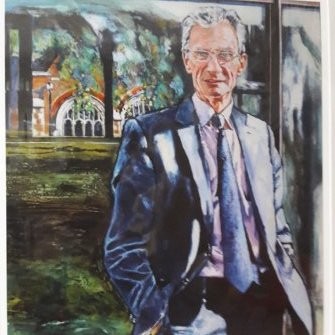
John Claughton is a co-founder of ‘WoLLoW’. He taught Classics for 17 years at Eton College and was Chief Master of King Edward’s School, Birmingham from 2006-2016. In 2016, he won the TES Independent School Lifetime Achievement Award.
Views expressed on CIOL Voices are those of the writer and may not represent those of the wider membership or CIOL.
Filter by category
More
The Chartered Institute of Linguists (CIOL), Incorporated by Royal Charter, Registered in England and Wales Number RC 000808 and the IoL Educational Trust (IoLET), trading as CIOL Qualifications, Company limited by Guarantee, Registered in England and Wales Number 04297497 and Registered Charity Number 1090263. CIOL is a not-for-profit organisation.

